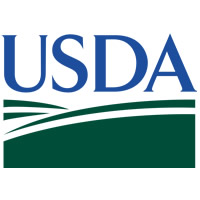USDA Launches Remote Beef Grading Pilot Program

On January 19, Agriculture Secretary Tom Vilsack announced a pilot program to allow more cattle producers and meat processors to access better markets through the U.S. Department of Agriculture’s (USDA) official beef quality grading and certification. The Remote Grading Pilot for Beef, developed by USDA’s Agricultural Marketing Service (AMS), matches simple technology with data management and program oversight to allow a USDA grader to assess beef carcass characteristics and assign the official quality grade from a remote location, reducing costs and location as barriers to participation in voluntary grading services.
The pilot program is part of USDA’s comprehensive approach to increase competition in agricultural markets, create a fairer playing field for small- and mid-size farmers and ranchers, and provide producers more options to market their products.
“On average, a beef carcass that grades as USDA Prime is valued at hundreds of dollars more than an ungraded carcass, but costs for this voluntary USDA service often prevents smaller scale processors and the farmers and ranchers they serve from using this valuable marketing tool,” said Secretary Vilsack. “This remote grading pilot opens the door for additional packers and processors to receive grading and certification services allowing them to access new, better, and more diverse marketing opportunities.”
While more than 90% of America’s fed beef supply is officially graded by USDA, most users are large beef packing operations. USDA’s meat grading and certification services are significantly underutilized by small, independent processors, in large part due to the expense of paying for a highly trained USDA grader to travel to their facility to perform service in-person for a relatively small number of cattle that may not require a full day of the graders’ work. Experience with remote grading so far has shown it dramatically reduces travel-related expenses, which makes the service more accessible to smaller processors.
In this pilot, trained plant employees capture specific images of the live animal and beef carcass. These images are submitted electronically to a USDA grader already stationed elsewhere in the U.S., who reviews the images and accompanying plant records and product data, assigns the USDA Quality Grade and applicable carcass certification programs, and communicates the official grade back to the plant to be applied to the carcass. Plants can then use this information in their retail marketing and transmit carcass performance information back to producers.
The pilot will build on lessons-learned during AMS’ feasibility study of a “remote grading” process conducted during the second half of 2023. AMS will expand its testing by engaging a larger and more diverse number of beef packers to participate in the development of this procedure. Through the pilot, AMS will gather additional information on actual cost and the level of in-person surveillance needed to ensure program consistency and integrity to formalize this service option as part of the USDA Quality Grading Service.
The Remote Grading Pilot for Beef is limited to domestic beef slaughter facilities operating under federal inspection and producing product that meets the eligibility criteria for the USDA grading program.
For more information about the Remote Grading Pilot for Beef, visit www.ams.usda.gov/remote-beef-grading. The USDA will host a webinar this Thursday, January 25 at 3:00 pm Eastern Time to provide additional information about the program. To register, visit the signup webpage. A recording will be made available following the live broadcast.